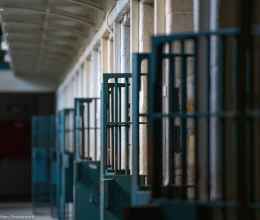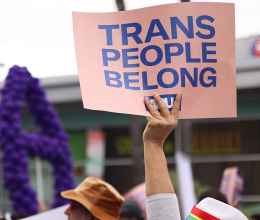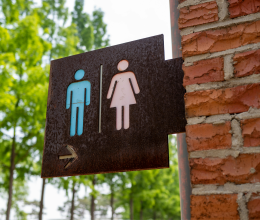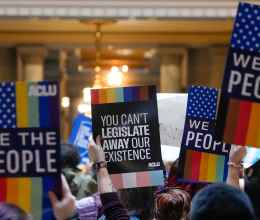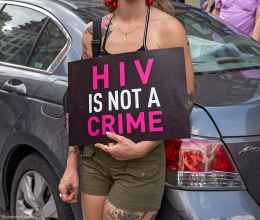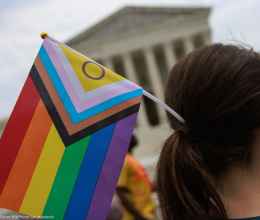
Tallahassee, Fla.— Today, the Florida House passed House Bill 1557 (HB 1557), a government censorship bill that bans school districts and teachers from discussing topics related to LGBTQ+ issues, including conversations about sexual orientation or gender identity, at any grade level “in a manner that is not age-appropriate.”
The bill would still require all “student support services training” in school districts to adhere to the guidelines and standards, which currently exclude anti-bullying resources intended to help prevent LGBTQ+ youth suicides, provided by the Florida Department of Education (DOE).
Under this bill, any parent who thinks that a classroom discussion was inappropriate or who is unsupportive of a district's policies would be given broad powers to sue for damages and attorneys’ fees.
Kara Gross, legislative director and senior policy counsel of the ACLU of Florida, responded to today's vote with the following:
“It is truly appalling to watch Florida politicians pass legislation that harms and shames school children and turns back the clock on decades of legal, social, political, and economic advancements by the LGBTQ+ community. It is 2022. We’ve had marriage equality in all 50 states for years. But Florida’s legislative leadership wants to force people back into the closet and deny their very existence.
“This bill is meant to stigmatize LGBTQ+ youth and family members and make teachers fearful of providing a safe, welcoming, and inclusive classroom. Schools and teachers should be able to teach our youth kindness, acceptance, respect for one another, and love for all people, especially those most vulnerable. This bill does the opposite. This bill does nothing to protect LGBTQ+ youth, who already experience higher rates of bullying, homelessness, and suicide because of the same type of sentiments outlined in this bill.
“All children should feel safe in school. HB 1557 will cause LGBTQ+ students to have their identities erased and discussions about their existence censored. It is always appropriate for kids to talk about themselves, their experiences, and their families. These are not taboo subjects, but banning them makes them seem so.”
